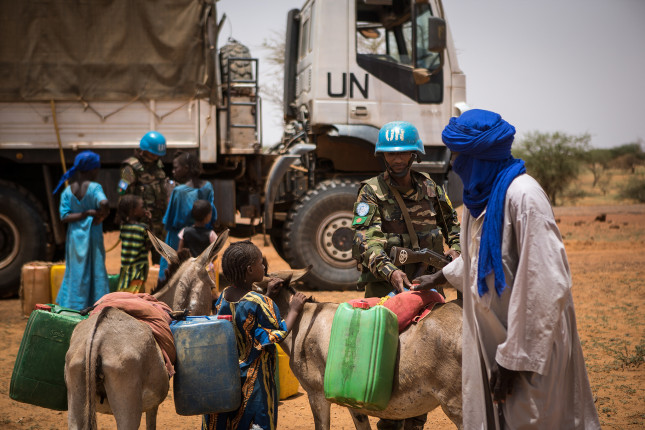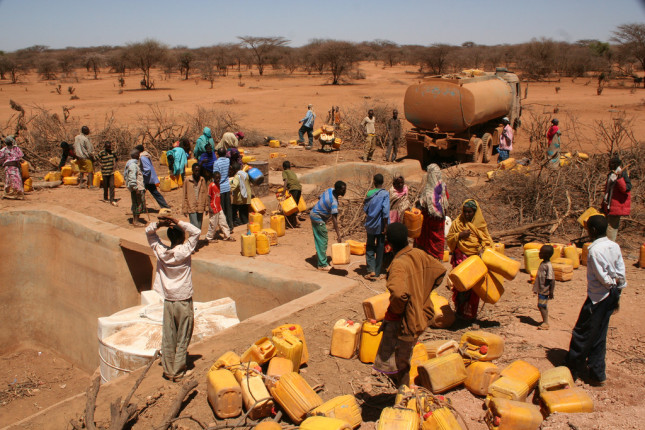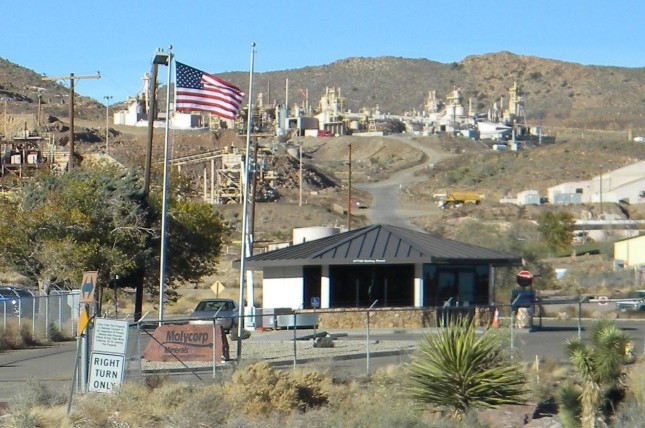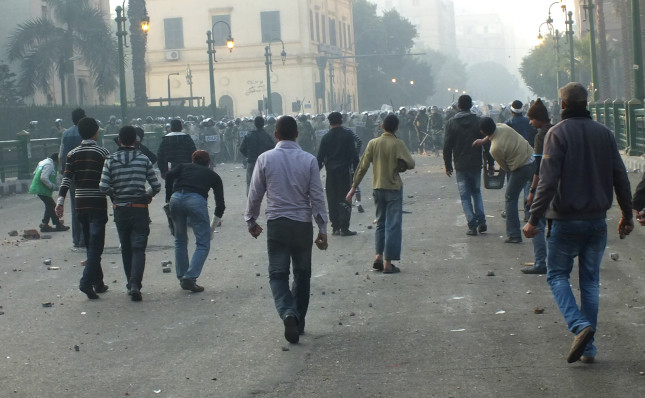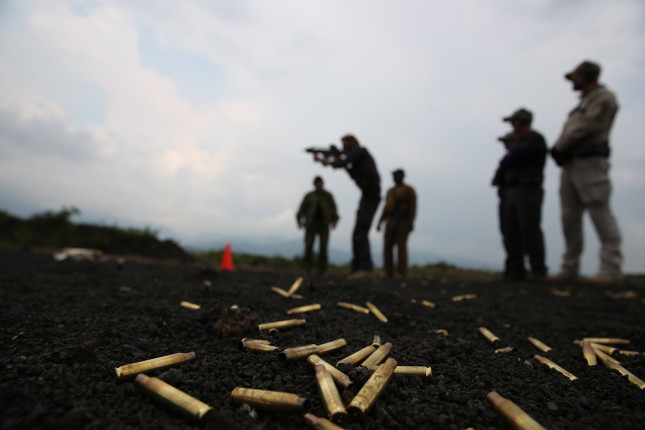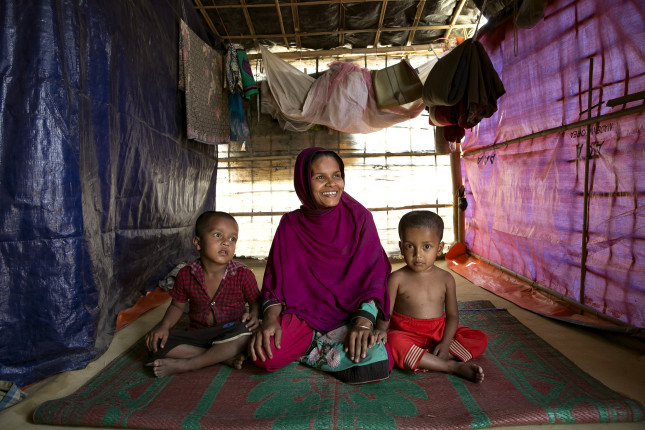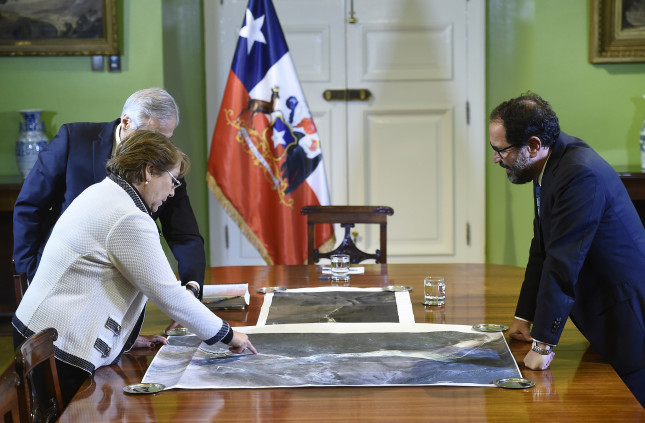-
Environmental Security in Times of Armed Conflict
›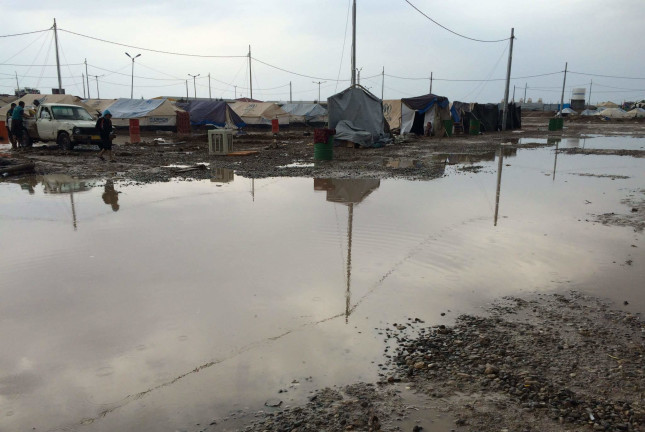
This summer, Iraqi citizens in Basra demonstrated in the streets to protest a serious public health crisis caused by polluted water. The condition of their water infrastructure was deplorable after years of devastating wars, corruption, and droughts and regional hydropolitics. More than 100,000 people have reportedly been poisoned by polluted water, while recent estimates warn that some 277,000 children are at risk of diseases, such as cholera due to rundown water and sanitation facilities at schools.
-
Lessons from Post-Conflict States: Peacebuilding Must Factor in Environment and Climate Change
›
The challenge of peacebuilding missions is not only to stop violence and prevent a rekindling of conflict, but also to help societies and governments reset their internal relations on a peaceful path towards sustaining peace.
-
The Double Burden of Climate Exposure and State Fragility
›
The security implications of climate change emerged as an important area of concern in the mid 2000s in both policy circles and academia. Since then, there has been much research exploring causal pathways between climate phenomena and violent conflict, often with inconclusive or mixed results.
-
China vs. United States: Competition Over Rare Minerals Ratchets Up
›
“Historically, resource conflicts have often centered on fuel minerals, like oil. Future resources conflicts may however focus more on competition for non-fuel minerals that enable [modern] technologies,” said Andrew Gulley, Mineral Economist at the United States Geological Survey. America’s 2018 National Defense Strategy says that great power competition is the country’s most important defense challenge. Its key competitor for resources is China. Gulley was among several experts gathered at New America on September 20 to discuss the new competitive space and prospects for conflict or cooperation.
-
Separatist Conflicts Persist, While Revolutions Just “Age Away”
›
The research presented in this article was subsequently published in a peer-reviewed article: https://link.springer.com/chapter/10.1007/978-3-030-73065-9_3
The Kurdish people’s century-long quest for self-determination reveals a key aspect of ethnic separatist conflicts. Ideas of nationhood can endure for generations, unifying people across borders and often making separatist conflicts hard to resolve. But how much harder is it to resolve separatist conflicts than other violent, non-territorial intra-state wars (such as political revolutions)? In practical terms, how much longer, on average, can policymakers expect separatist conflicts to persist and reoccur than the typical political revolution? These are tough questions. Surprisingly, demography helps us find the answers.
-
Green Conflict Minerals: Investigating Renewable Energy Supply Chains in Fragile States
›
The shift to a low-carbon economy is not only underway, it is accelerating. Last year, Costa Rica generated more than 99 percent of its electricity using renewable sources; Germany expanded its onshore wind power capacity by 5,300 MW, and in the United States, more than 62 percent of new power plants under construction will produce renewable energy. What does this rapid increase mean for the countries that supply the inputs required to build these new facilities—particularly those countries that are struggling with fragility or corruption?
-
Mothers on the Front Lines: Armed Conflict, Aid Distribution, and Maternal and Child Health
›
While most people killed in wars are male, several studies have found that “mortality among women in some high-intensity conflicts was as severe as male mortality,” said Henrik Urdal, the Director of the Peace Research Institute Oslo (PRIO), at a recent Wilson Center event on the links between maternal and child health, aid, and armed conflict. “Maternal health is a very natural place to start” when researching excess mortality and indirect deaths among women impacted by war, said Urdal.
-
As Andean Glaciers Retreat, So Does Regional Security
›
Last month, Bolivia filed a counterclaim against Chile in the International Court of Justice—the latest salvo in their battle over rights to the waters of the Silala River. The court will decide whether Silala is “an international watercourse”—thus granting water rights to Chilean mining operations—or simply an artificial diversion of Bolivian spring water by Chile. This legal case marks the latest chapter in Bolivia and Chile’s historically delicate relationship, which dates back to the War of the Pacific in the late 19th century.
Showing posts from category conflict.


